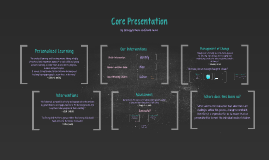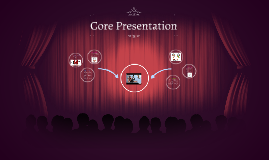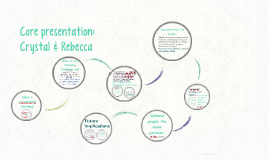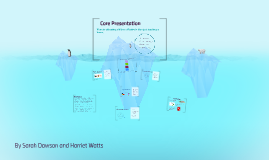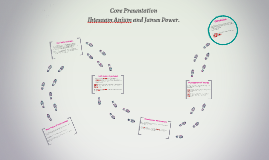Core Presentation
Transcript: Higgins et al point out that this ‘instead of focusing on meaningful learning experiences’ focuses on training children to perform and therefore does not provide a holistic education. (Betty Higgins, Melinda Miller,Susan Wegmann, 2006). 'Well-planned, purposeful activity and appropriate intervention by practitioners will engage children in the learning process and help them make progress in their learning.' (QCA, 2000:11) Conclusion Black et al found that some people believe that summative assessment is too narrow and that formative assessment caters for a more holistic outlook. Black, Harrison, Lee, Marshall, William, 2002). As Ofsted state, higher ability children are underperforming. (Ofsted, 2013). Ordinary teaching does not enable children with literacy difficulties to catch up. (Brooks, 2013:18) ‘aids children and young people, to apply their learning in mainstream lessons and to ensure that motivation and progress in learning are sustained’. (Brooks, 2013) In a study by Williams et al, assessment for learning was proved to provide tangible benefits to learning. (Williams, Lee, Harrison, Black, 2010). Drummond states that the challenge when assessing children’s learning is trying to do honour to their rights and interests, which therefore enhances their educational experience. (Drummond, 2012:13) Assessing our Interventions Dean outlines the difficulties practioners face when planning, teaching and assessing, trying to personalise learning. (Dean, 2012). Our Interventions Our Interventions. Fullan argues that unless deeper change in thinking and skills occur, there will be limited impact. (Fullan, 1993) Management Of Change Lets make it personal The Gilbert review states once pupils have fallen behind their peers they are less likely to make good progress. (Gilbert, 2007). The Gilbert Review defined personalised learning in the following terms: ...personalising learning and teaching means taking a highly structured and responsive approach to each child's and young person's learning, in order that all are able to progress, achieve and participate. (Gilbert Review, 2007: 6) Our Interventions Dean argues that to be an effective subject leader you need to be both a leader and a manager. (Dean, 2013). The assessment for learning strategy outlines that for it to be successful; children need to understand the aim of their learning, where they are in relation to this aim and how they can achieve the aim. (Department for Children, 2008) Importance of Interventions The department for schools, children and families state that gifted and talented children need to be effectively nurtured in order to avoid underachievement within this group. (Department for children, 2008). Core Presentation Ibtesaam Anjum and James Power. Gillet et al state that linguistic and cultural diversity makes the teaching of standard English much more difficult. (Gillet, Beverly, 2001) Lets make it personal Gardner states the importance and benefits of assessment of learning are huge. (Gardner, 2012). A guided writing intervention was undertaken to address weaknesses in children's written work and consequently provide them with new strategies to improve their writing. I used Alan Peat's framework of different types of sentence. Spoken language development - Children who were low confidence speakers were identified and iPads were used to enable them to create a digital story. The every child matters document states that, every child needs to be given the tools to succeed and not just focus on one ability group. (DfES, 2003) Fullan further argues that the problem is not resistance to change, but the presence of too many innovations. (Fullan, 1993). Ofsted reported that students are underperforming and not reaching their full potential. (Ofsted, 2013). Di Blas argues that the motivation generated by the ICT experience lasts more than the experience itself and influences other school activities. (Di Blas, 2014). Black and William point out that formative assessment produces significant, and often substantial, learning gains. (Black, William, 1998) Assessing our interventions







